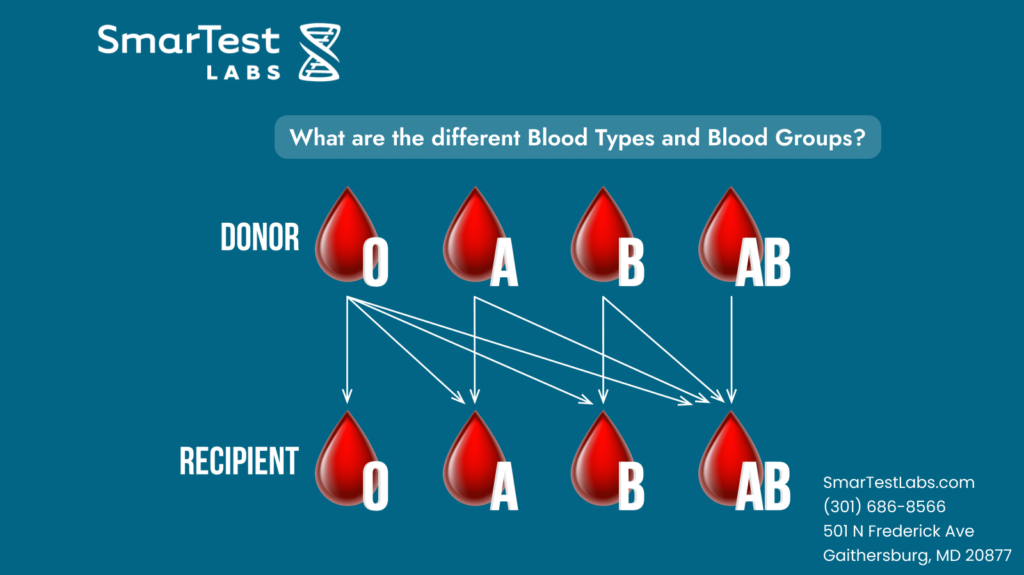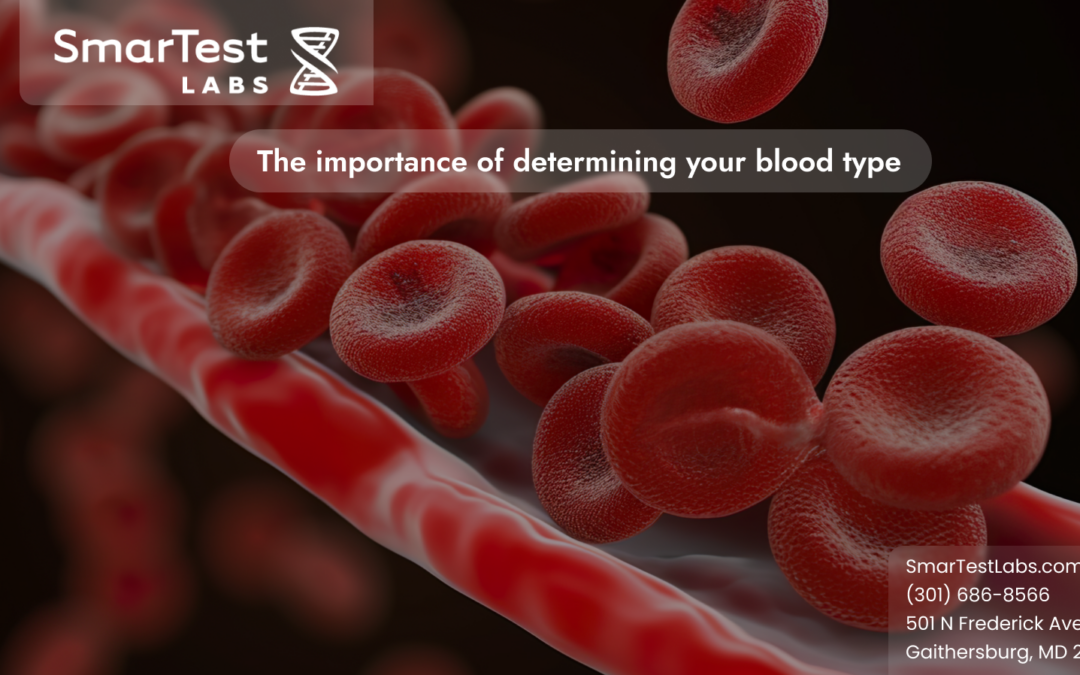The importance of knowing your blood type is critical if it is needed. It is surprising that many of us do not know our blood type.
Your blood carries antigens that determine your blood type. These antigens provide immune response to any foreign entry to your body. This knowledge will assist in any need for transfusion and other needs like blood donations, organ transplants and many more clinical conditions.
What are the different Blood Types and Blood Groups?

The most common blood types are A+, A-.B+, B-,O+,O-,AB+ and AB-. There are a total of 45 blood groups the key being ABO and Rh. The ABO blood group carries 2 antigens A and B on the red blood cells. This creates classification of the group A, B, O and AB. The ABO is critical especially in human blood transfusions.
These major categories determine the absence or presence of antigens in your body including the protein (Rh factor) which is shown as a + or – in each category. The Rh factor has 50 antigens. This blood group is the second most important blood group in the human body and research has determined that it is more dominant in the European population and less in the Asian population.
Blood types are inherited from your parents and remain the same blood group from birth to death. The only thing that can influence your blood group is a bone marrow transplant, infection or some other malignancy.
Why is knowing your blood type important
Blood transfusion or organ transplants are a common daily occurrence.
According to the Red Cross Association, there are approximately 29,000 units of red blood cells needed in the USA every day. (***Red Cross Statistics)
This shows that the demand for transfusions occur daily at a high volume. Everyone should know their blood type in case of emergencies.
Blood transfusion is a discipline in hematology. The transfusion requirements for a person will be determined by a hematologist who is a physician qualified to conduct such a matching algorithm for anyone. Not knowing your blood group can cause errors in transfusion including sudden death. Ask your physician what your blood type is as they might have that as part of their medical chart.
There are other clinical findings that can assist in determining rare genetic disease if a blood type test is done. These include disease like Sickle-cell, Tay-Sachs, McLeod syndrome, Malaria, Von Willebrand disease and many others. This helps individuals manage their clinical journey throughout life. These are disease that are inherited and are passed through genetic parent-child and ancestry. Knowing your blood type can influence decisions made for future family members.
Knowing your blood type in blood donations
Blood type helps in many clinical requirements. Those who donate blood should know their blood group for compatibility in clinical use.
The table below will show compatibility:
| Blood Type | Receiving Compatibility | Donating Compatibility |
| A+ | A+, A-, O+, O- | A+, AB+ |
| A- | A-, O- | A-, A+, AB-, AB+ |
| B+ | B+, B-, O+, O- | B+, AB+ |
| B- | B-, O- | B+, AB+ |
| O+ | O+, O- | O+, A+, B+, AB+ |
| O- | O- | Universal |
| AB+ | Universal | AB+ |
| AB- | AB-, A-, B-, O- | AB-, AB+ |
SmarTest Labs conducts tests for any requests you require. We can assist you determine the type of test required and what you are trying to determine. Clinical tests and other wellness checks use blood draws to determine many outcomes. We can also assist you with determining your blood type.
Call us at 301-686-8566 (OR) use the attached link to contact us and will be return your inquiry:

Recent Comments